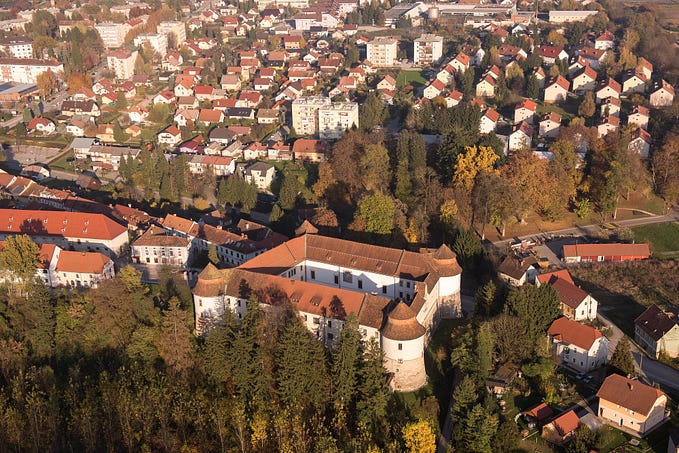Research
Fiber ‘Reprograms’ Gut Bacteria To Improve Overall Health
Scientists have uncovered a surprising link between dietary fiber and the production of beneficial chemicals in our gut.

This research reveals that eating more fiber doesn’t just bulk up your stool — it actually “reprograms” your gut bacteria, shifting their metabolic activities in ways that could have far-reaching effects on your health.
The discovery challenges our understanding of how diet influences our body and opens up new possibilities for managing health through targeted dietary interventions. What we eat doesn’t just feed us — it fundamentally alters the way our gut bacteria operate, potentially impacting our health in ways we never imagined.
At the heart of this study, published in Nature Microbiology, is tryptophan, an essential amino acid found in foods like turkey, cheese, and eggs. Tryptophan has long been known for its role in producing serotonin, often called the “happy hormone.” But it turns out that tryptophan has a secret life in our gut, where it’s transformed by bacteria into a variety of compounds, some beneficial and others potentially harmful.
The researchers found that when we eat more fiber, our gut bacteria shift gears. Instead of producing indole, a compound linked to chronic kidney disease, they start churning out more beneficial substances like indolelactic acid (ILA) and indolepropionic acid (IPA). These compounds have been associated with a range of health benefits, from improved gut barrier function to potential protection against Type 2 diabetes.
But how does fiber pull off this metabolic magic trick? The key lies in the complex interplay between different types of gut bacteria. When we eat fiber, certain bacteria break it down into simple sugars. These sugars then become food for other bacteria, including some that would otherwise be busy converting tryptophan into indole. With their attention diverted to these fiber-derived sugars, these bacteria produce less indole, leaving more tryptophan available for other bacteria to convert into beneficial compounds like ILA and IPA.
This process, known as cross-feeding, is like a microscopic version of economic specialization. Just as a town might have some people growing food and others running restaurants, our gut has different bacteria specializing in breaking down fiber, consuming simple sugars, or processing tryptophan. The availability of fiber changes the balance of these activities, much like how the introduction of a new industry might reshape a town’s economy.
The implications of this discovery are profound. For years, we’ve known that a high-fiber diet is associated with numerous health benefits, from lower risk of heart disease to better weight management. This study provides a mechanistic explanation for some of these benefits and suggests that the impact of fiber on our health may be even more far-reaching than we thought.
Moreover, this research opens up new avenues for personalized nutrition. In the future, we might be able to tailor fiber intake not just to improve digestion, but to deliberately shape the chemical output of our gut bacteria. This could potentially help manage conditions ranging from inflammatory bowel disease to metabolic disorders.
The study also highlights the relationship between our diet and our microbial residents. The bacteria in our gut aren’t just passive hitchhikers — they’re active participants in our physiology, capable of producing a wide range of compounds that influence our health. By changing what we feed them, we can change what they produce, effectively using diet to “hack” our internal chemistry.
So the takeaway in a nutshell? A fiber-rich diet doesn’t just feed us; it feeds an entire microbial world within us, with cascading effects throughout our body.
In a world where we’re constantly bombarded with conflicting nutrition advice, this study offers a clear message: fiber matters, and it matters in ways we’re only beginning to understand. So the next time you’re deciding between a salad and a slice of pizza, remember — you’re not just choosing a meal, you’re choosing which microscopic factories to activate in your gut.
The researchers used a combination of laboratory experiments and animal studies to investigate how dietary fiber affects tryptophan metabolism by gut bacteria.
They started with simple systems, growing individual bacterial species in the lab and measuring how they processed tryptophan under different conditions. They then moved to more complex systems, including mixed bacterial communities from human fecal samples and mice colonized with specific bacterial species.
The mice were fed diets with varying levels of fiber and tryptophan, and the researchers measured the levels of different tryptophan metabolites in their gut contents and blood. They also used genetic techniques to measure which bacterial genes were active under different conditions.
Results
The study found that when fiber was present, bacteria produced less indole and more beneficial compounds like ILA and IPA. This effect was seen both in lab experiments and in mice. Importantly, the total number of bacteria didn’t change much — instead, the bacteria changed their behavior, producing different compounds from the available tryptophan.
The researchers were able to trace this effect to specific bacterial species and even to particular genes within those bacteria. They found that fiber-derived sugars suppressed the activity of genes involved in indole production.
Limitations
While this study provides valuable insights, it has some limitations. Most of the experiments were done in mice or in laboratory conditions, which don’t perfectly mimic the complex environment of the human gut.
The study also focused on a limited number of bacterial species and tryptophan metabolites, while the real gut microbiome is much more diverse. Additionally, the diets used in the animal studies were more extreme than what most humans would typically consume, so the effects in a normal human diet might be more subtle.
This study provides a mechanistic explanation for how dietary fiber can influence gut bacterial metabolism, potentially explaining some of the health benefits associated with high-fiber diets. It suggests that fiber intake could be used as a tool to modulate the production of specific gut metabolites, opening up new possibilities for dietary interventions in various health conditions.
The research also highlights the importance of considering not just the presence of certain bacteria in the gut, but also their metabolic activities. Future research could explore how these findings translate to humans and whether targeted fiber interventions could be used to manage specific health conditions.









